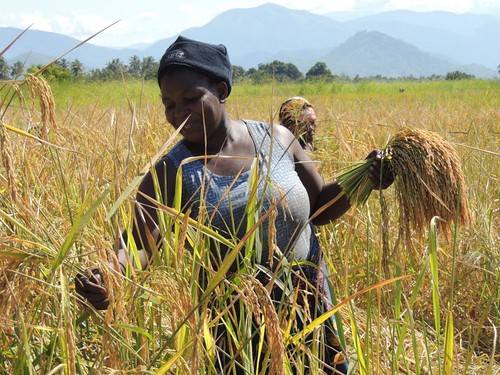Boost for Africa’s smallholder farmers’ access to sustainable agricultural technologies as USAID announces $ 50 million Africa RISING Phase 2

The U.S. Agency for International Development’s (USAID) Bureau for Food Security in Washington DC has announced funding for a second 5-year phase of the Africa Research in Sustainable Intensification for the Next Generation (Africa RISING) program beginning October 2016. Funded through the agency’s Feed the Future initiative the second phase of Africa RISING will focus on ensuring farming communities within target feed the future zones of influence in Ethiopia, Malawi, Zambia, Tanzania, Ghana and Mali get access to the best-bet/best-fit improved farming practices identified by the project’s research team during the first phase of the project.
“Farmers need access to improved agricultural technologies that have gone through an iterative research process to establish suitability and quality if they are to sustainably optimize the productivity of their farms in a way that lets them benefit from existing and future markets and add value to their crops and herds. This is the goal we aim to achieve through programs like Africa RISING that will now in this new phase have significant focus on ensuring farmers get their hands on improved technologies that have gone through this process,” said Jerry Glover, the USAID Bureau for Food Security’s Senior Sustainable Agriculture Advisor.
The goal of the Africa RISING program is to create opportunities for smallholder farm households to move out of hunger and poverty through sustainably intensified farming systems that improve food, nutrition, and income security, particularly for women and children, and conserve or enhance the natural resource base. The program which brings together over 100 research and development organizations teaming up to achieve this goal is led by the International Institute of Tropical Agriculture (in West Africa and East and Southern Africa) and the International Livestock Research Institute (in the Ethiopian Highlands). The International Food Policy Research Institute leads the evaluation and impact assessment.
“During first phase of the program, we focused on research with selected farming communities and successfully identified and validated various demand-driven agricultural technologies with the greatest potential of being scaled to reach more farmers. Our targets in the second phase is to continue validating these technologies and ensure that at least 500,000 small holder farm households get access and are able to benefit from these technologies,” notes Dr. Siboniso Moyo, Chair Africa RISING program steering committee.
Phase II of Africa RISING has an ambitious, but achievable vision of success across the six countries. Collectively, the three projects will engage with almost 25,000 participating research households. Guided by the technical, system and national priorities, the program will work directly with development partners to scale Africa RISING innovations into a further 500,000 households. The evidence base generated through this widespread scaling will help catalyse further partnerships that will put promising technologies and integrated interventions in the hands of millions of target rural people.
The Ethiopia project will formally align with the proposed CGIAR LIVESTOCK research program; the others to the CGIAR MAIZE program
Phase II begins on October 1, 2016. Download the phase II proposals:




